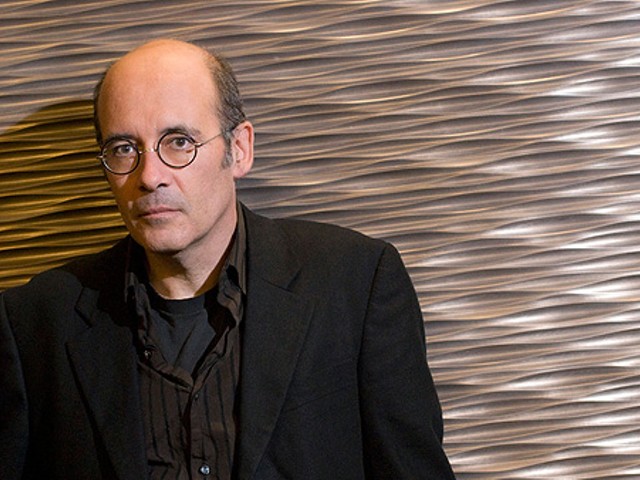Record stores can be as important a part of the glue that holds a music scene together as the best clubs and labels. They're also where so many musicians, DJs, and producers get started — whether meeting future collaborators or figuring out where they're headed. They can even be seen as breathing archives, filled with both the ugly and wonderful aspects of local music history. And while the Internet likes to take so much credit for "breaking" new releases, a simple recommendation or in-store play at a spot you take seriously can mean more than all the stars in the world on a review site.
Record shops each have their own characters, especially used ones, which brings us to Hamtramck's Lo & Behold! a store with more character than most. Richie Wohlfeil's four-year-old multi-purpose shop is a bit chaotic, but charming and surprisingly vital. Wohlfeil is a whirlwind of energy — publishing books, hosting chess get-togethers, releasing cassettes and LPs, giving lectures on area history at the drop of a hat, putting on events at a moment's notice, drumming in more than a half-dozen groups — and it all works, held together by the glue of his dynamic personality. If you're going to drop by L&B, it's best to call first, as he could be on tour with the Darleans or helping a friend with a last-minute favor right then.
Metro Times: Did the store always sell a wide variety of things, rather than just records?
Richie Wohlfeil: It began as a variety shop with me and three other people, mine being the record and book side. Most of that is gone, but there's a few stragglers left like some clothes and boots.
MT: What's your favorite thing about running all this stuff at the same time?
Wohlfeil: The process, and having a workspace for all the things I'm working on. Slowly making this place how I see it in my head — I made every shelf and bin in this place but I still got more to make, walls to paint; hand-stamping every 45 sleeve; hand-dubbing the first run of every cassette; designing every cover; recording most of what I'm releasing myself, editing it all; booking bands, running sound, and hand-printing event fliers; being a half-assed Web designer; and somehow manage to play in a stack of bands while actively hunting and buying stock for the shop — the process of all of it, of making all of this from nothing.
MT: What has been your biggest find/sale in terms of money?
Wohlfeil: Nobody cares about that information, nor do I. More interesting is the human, spiritual, friendship value I've gained here.
MT: Folk Blues Night is still going strong, correct?
Wohlfeil: Yes! And in the last year, we were awarded grant money from the Knight Foundation to press up some LPs of our Folk Blues Night cassette tape series. The night is a monthly traditional music party with old-timey folk, blues, gospel, and bluegrass performers from all over (from Toledo, Ohio, to Alaska). Phil Leslie prefaces each night with a children's story and song hour, and I follow the performers with an all-78 RPM old-time dance party. I wanted a proper traditional music night in town and felt a need to remove that from the coffeeshop/singer-songwriter scene it's often lumped in with. We wanted to party in a juke joint sometime between the '20s and '40s, and that didn't exist in town. So we made our own.
MT: Have you ever tried to keep the store open when you take off to go on tour?
Wohlfeil: I have, and it ends up costing more per day than the shop's daily income, which is a disaster. People have offered to watch it for free, but I don't have the heart to have someone work and not pay them. Beyond that, so many disasters occur at the shop on a daily basis. I've got to be around to handle most of 'em. The safest bet is to just close up, bring back tour bread to pay bills, open up, and start over. That probably seems like the worst business model ever, but I'm not a businessman.
MT: Does the store have a general philosophy?
Wohlfeil: Be good to one another.






